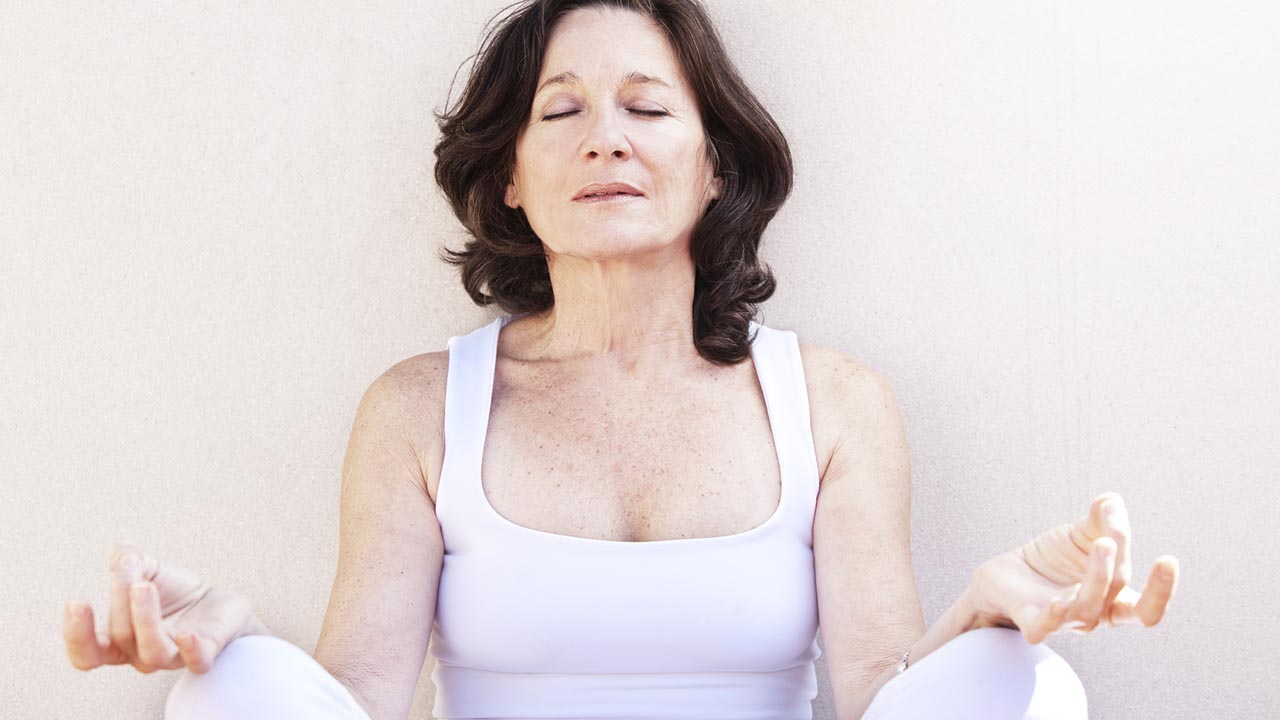 brainsil/fotolia
brainsil/fotolia
Not every woman will need – or seek out – treatment for their menopausal symptoms. For some, the symptoms might be mild enough to forgo treatment and will eventually go away on their own. Yet others may find the symptoms too uncomfortable or disruptive to their lives to put up with long-term.
There are many ways to deal with the symptoms of menopause, which include medications as well as changes in lifestyle habits. Though menopause is not a disease that must be treated, you might need some help if your symptoms are bothersome or especially difficult.
Hormonal Therapy
Sometimes referred to as hormone replacement therapy (HRT), hormone therapy (HT), menopausal hormone therapy (MRT) or estrogen replacement therapy (ERT), hormonal therapy uses female hormones (estrogen and progesterone) to relieve troubling symptoms of menopause such as hot flashes and vaginal dryness. HRT may also protect against bone loss, or osteoporosis, which often occurs with the decline of estrogen levels.
Prescribed most often as a pill or patch to be taken every day to relieve the symptoms of menopause, HRT may be prescribed in cream, vaginal ring, gel or spray form and involves the use of either estrogen alone or estrogen given with another hormone, progesterone (or progestin).
Estrogen therapy (ET) is estrogen taken alone. Because estrogen can increase the risk of cancer of the uterus (endometrial cancer), ET is only safe for women who don’t have a uterus (as in the case of hysterectomy, for example).
Estrogen Progesterone/Progestin Hormone Therapy (EPT, or combined hormone therapy) combines doses of estrogen and progesterone or progestin, a synthetic form of progesterone. This is used for women who still have a uterus because taking these medicines together helps reduce the risk of endometrial (uterine) cancer.
Like many health treatments, there are pros and cons to taking HRT. In addition to reducing the risk of osteoporosis, hormone therapy benefits include the relief of hot flashes, night sweats, vaginal dryness and dyspareunia (pain with sexual activity). Risks include a possible increase in blood clots, heart attacks, strokes, breast cancer, and gallbladder disease.
Hormone therapy does not come without its side effects, which may include bleeding, bloating, breast tenderness or enlargement, headaches, mood changes, and nausea.
Depending on your health history and lifestyle, your risk can vary, and certain types of HRT have a higher risk. If you do decide to take it, it should be at the lowest dose that proves helpful – and for the shortest time needed.
Low-dose Antidepressants
Related to the class of drugs known as selective serotonin reuptake inhibitors (SSRIs), certain antidepressants can help decrease hot flashes. This may be a good option for women who can’t take estrogen alone for health reasons or who need an antidepressant for a mood disorder. Breast Cancer.org reported JAMA’s 2014 research findings that the antidepressant Effexor (venlafaxine) was slightly less effective than HRT in relieving hot flashes. Other antidepressant options include Fluoxetine (Prozac, Sarafem) and Paroxetine (Paxil, Pexeva).
Vaginal Estrogen
Used to relieve vaginal dryness, discomfort with intercourse, and some urinary symptoms, vaginal estrogen is dispensed directly to the vagina via cream, suppository, tablet or ring and releases just a small amount of estrogen. It’s been found to restore vaginal blood flow and can reverse the thinning and dryness of vaginal tissues (which lubricants and moisturizers cannot do). Though vaginal estrogen can treat local problems of the genitals (such as vaginal atrophy) and urinary system, this low dose of estrogen therapy has not been found to protect against osteoporosis or hot flashes. Women with a history of breast cancer should discuss the pros and cons of this treatment with their doctors, as more studies are needed.
Alternative Therapies
Some women find relief or reduction of their menopausal symptoms through mind and body practices such as yoga, tai chi, qi gong, and acupuncture.
Other alternative treatments include black cohosh, dong quai, ginseng, kava, red clover, and soy extracts. They may have side effects, be contraindicated for certain health conditions or not recommended to be taken along with other prescription medications, so always check with your doctor first.
It’s important to remember that there isn’t one treatment that’s right for all women. To decide what’s best for you, discuss the possible risks and benefits of these treatments with your doctor. Scientific research studying the effects of menopausal hormones and alternative therapies on menopause and postmenopausal conditions is ongoing.
Sources:
Menopause Health Center, Hormone Replacement Therapy for Menopause. WebMD. Retrieved August 14, 2015. http://www.webmd.com/menopause/guide/menopause-hormone-therapy
Menopausal Hormonal Therapy. Johns Hopkins Medicine. Retrieved August 14, 2015. http://www.hopkinsmedicine.org/healthlibrary/conditions/gynecological_health/menopausal_hormone_therapy_85,P00564/
Menopause and Hormones: Common Questions. U.S. Food and Drug Administration. Retrieved August 14, 2015. http://www.fda.gov/ForConsumers/ByAudience/ForWomen/ucm118624.htm
Effexor Seems Just as Good as HRT in Easing Hot Flashes. Breastcancer.org. Retrieved August 16, 2015. http://www.breastcancer.org/research-news/effexor-vs-hrt-for-hot-flashes
Vaginal and Vulvar Comfort: Lubricants, Moisturizers, and Low-dose Vaginal Estrogen. The North American Menopause Society. Retrieved August 14, 2015. http://www.menopause.org/for-women/sexual-health-menopause-online/effective-treatments-for-sexual-problems/vaginal-and-vulvar-comfort-lubricants-moisturizers-and-low-dose-vaginal-estrogen
Estrogen (Vaginal Route). Mayo Clinic. Retrieved August 14, 2015. http://www.mayoclinic.org/drugs-supplements/estrogen-vaginal-route/description/drg-20069459
Menopausal Symptoms and Complementary Health Approaches. National Center for Complementary & Integrative Health. Retrieved August 14, 2015. https://nccih.nih.gov/health/menopause/menopausesymptoms
Hormone therapy. U.S. National Library of Medicine (MedlinePlus). Retrieved August 14, 2015. https://www.nlm.nih.gov/medlineplus/ency/article/007111.htm
Reviewed August 31, 2015 by Michele Blacksberg RN
Read more in Your Guide for Menopause & Hot Flash Treatment Options



